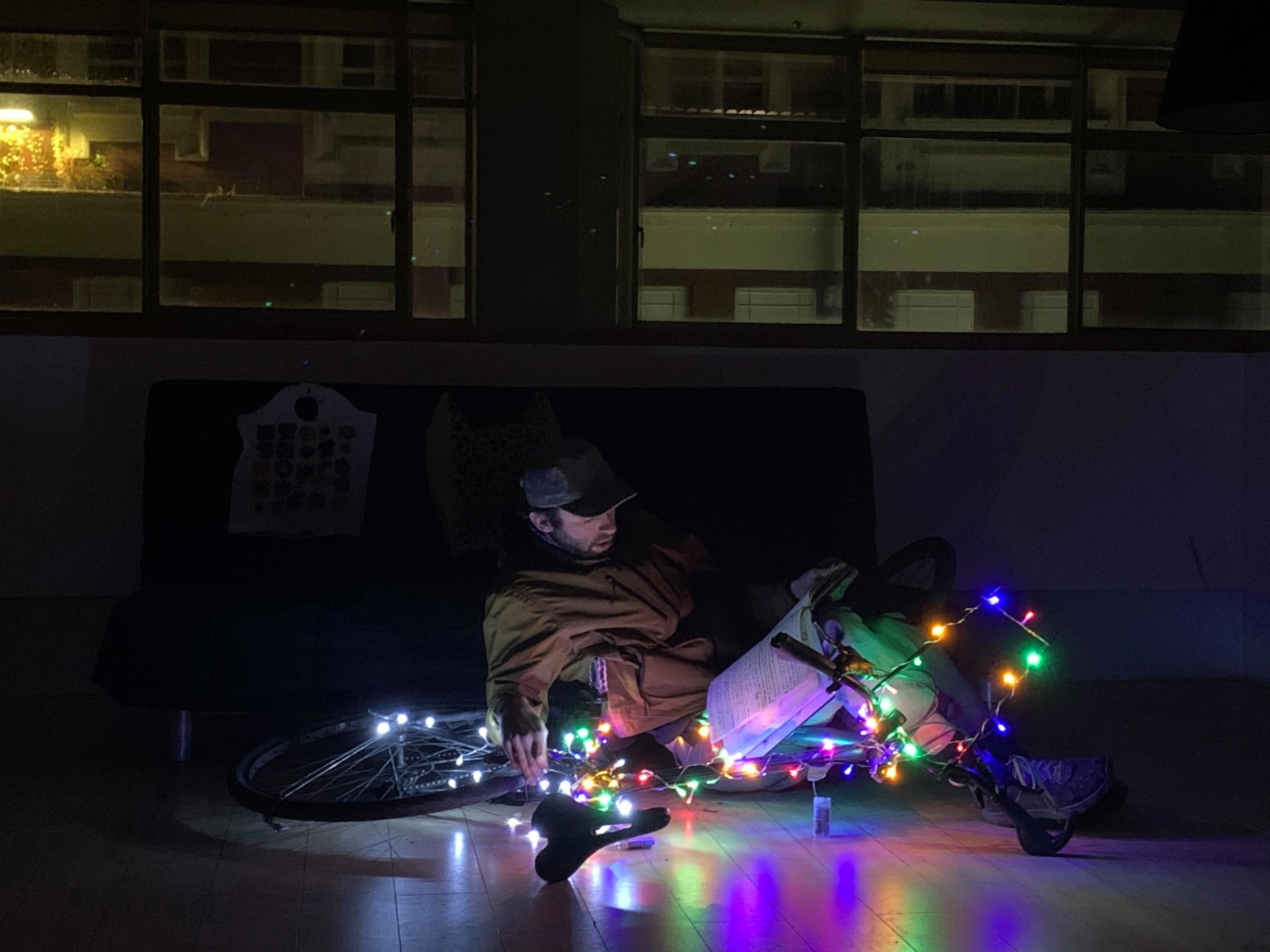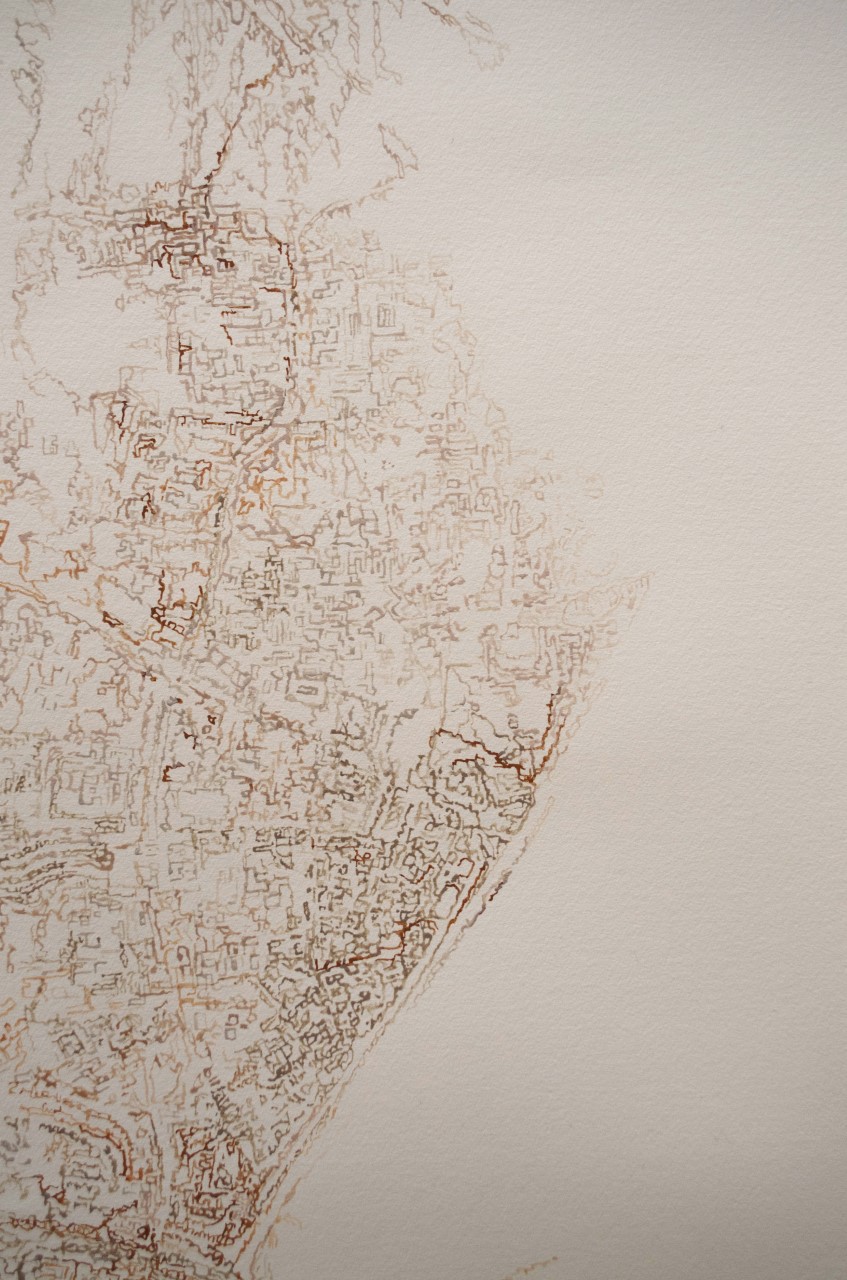As part of a shared commitment to supporting artists across the UK, earlier this year Liverpool Biennial 2021, a-n The Artists Information Company and Open Culture joined forces to provide five support and research bursaries of £1500 each for artists between March and June 2021, within the 11th edition of the Biennial.
The selected artists were: Youngsook Choi and Taey Iohe, Grace Collins and William Lang, Sophy King, Daksha Patel, and Rain Wu.
Delivered as part of the Liverpool Biennial public programme and in partnership with a-n during our 40th anniversary year, these bursaries allowed artists to undertake a period of research in response to a new avenue of thinking. Designed to reflect the diversity of artistic practices in ‘The Stomach & The Port’, applications were encouraged from artists working in all visual and sonic arts disciplines that reflected innovative and ambitious thinking.
Each artist was invited to present their research and work in progress throughout the festival, either in person or digitally. These showcases took on a variety of different formats and provide further insight into the projects that the artists are developing. Here we take a look at each of their projects and what they have planned going forwards.

London-based Korean diaspora artist duo Breakwater consists of Youngsook Choi and Taey Iohe. With a mutual interest in counter-narratives of spiritual knowledge, folklore, and queer methodologies, the artists’ collaborative practice centres around socio-politics of post-colonialism, climate justice, and migrant’s lived experiences.
Choi and Iohe have used the bursary for a variety of activities, including researching colonial botany and shamanic plants, and developing the ideas of inter-species symbiotic care. They have also launched an experimental working group with invited practitioners whose works are anchored on decolonising botanical science, and set up mentoring sessions for further development beyond the bursary period.
Commenting on the impact of the bursary, they said: “It has provided the resource for us to start our collaborative research on the history of indentured labour that involved Chinese migrants as well as for building the narratives of inter-species care for colonial history. Part of the research was developed into the storytelling performance Yellow Furry Lullaby, presented in the exhibition ‘Have You Eaten Yet’ as part of the Deptford X Festival 2021.
“Also, the opportunity to be part of the Liverpool Biennial public programme endorsed us to help form and launch the ‘Decolonising Botany’ working group with a transnational network of artists/researchers whose works we truly admire.”

Grace Collins is a participatory artist from St Helens who works with other people to create new artworks about magic, mental health, and chairs. William Lang is a performer and dance artist based in Liverpool, whose practice explores queerness, the un-trained body and the ephemeral through improvisation scores.
Together they have built on recent immersive performance and installation Host of Nothing (2020), a work created for the winter solstice. They have returned to host each other’s practices to create a short film Past the tree line. Re-interpreting both of their process-led participatory practices through video provides a relevant option to share immersive performative artworks with audiences within current restrictions.
Manchester based artist Sophy King‘s early career was spent creating public artworks, which developed, via landscape architecture, into a multidisciplinary practice addressing the intersection between human and non-human activity. Her recent MA Fine Art at MMU considered the environmental and cultural implications of peat consumption, ecosystem depletion and the climate crisis.
King has used the bursary to learn to record sound (underwater and above) and to enhance editing skills, through masterclasses and mentorship by industry professionals. This technical development has supported her current work about wild swimming through the pandemic. It has also enabled her to establish contacts, exploring this work’s dissemination.

Daksha Patel, who currently lives in Manchester and works in Salford, has developed a practice that engages with scientific processes of visualisation, measurement and mapping. Recent residencies include: Anatomy, King’s College (current), Life Science, Dundee University (2018), and Mathematics, Bristol University (2019). Recent solo exhibitions and events include Dundee Contemporary Arts (2019).
She was based at Invisible Flock’s studio in Yorkshire Sculpture Park for the duration of the bursary period, where she was mentored in the use of LIDAR scanner technology. Patel experimented with LIDAR in the field, by scanning water in the nearby lake and exploring projecting the scans on the surface of the water.
Commenting on the impact of the bursary, Patel says: “It enabled me to research and experiment with Lidar and photogrammetry mapping technologies, and to make underwater recordings with hydrophones at Invisible Flock’s studio in Yorkshire Sculpture Park. The production of four test videos titled wateriness from my footage and sound recordings introduced me to new software such as Unity, Cloud Compare and Reality Capture. It was an incredibly intensive and enjoyable learning experience in a very supportive environment (huge thanks to studio manager Klavs Kurpnieks), and one of the best residencies I’ve experienced.”
Next up, Patel is developing an animation Modelling Morecambe Bay, a commission for Lancaster University responding to environmental mapping research. “I will also be developing more work using Lidar in my upcoming commission for Lumiere Projects, a light projection in Durham for the BRILLIANT festival. My costume ‘Symbiotic Morphologies’ will also be showing at the National Taiwan Craft Development Institute, as part of the ‘Art, Paper & Fibre’ International Biennial.”

London based Taiwanese artist and architect Rain Wu‘s work is conceptually driven and materialises in different forms and scales from drawing, sculpture, food performance to architectural installation. Her work has been exhibited at various high profile shows, including Sharjah Biennial, Taipei Biennial, The Palestinian Museum, London Design Biennale, and Lisbon Architecture Triennale.
Wu has used the bursary to purchase mycelium and set up a grow room in her studio. Throughout the duration of the Biennial, she has researched and developed the ‘cast-growing’ technique using custom-made molds with a goal in developing an aesthetic language from the material itself.
She comments: “Liverpool Biennial’s theme ‘The Stomach and The Port’ and its exhibiting artists are influential to my practice, I am very honoured to be part of the programme. The bursary programme allowed me to set up a mycelium growing station at the studio and explore ways of creating forms with this fascinating living material.
“Going forward, I am planning on a solo show in the UK next year and I will be integrating mycelium growing techniques into the curriculum of an art school from September 2021 onwards.”
Top image: Youngsook Choi, Not This Future

